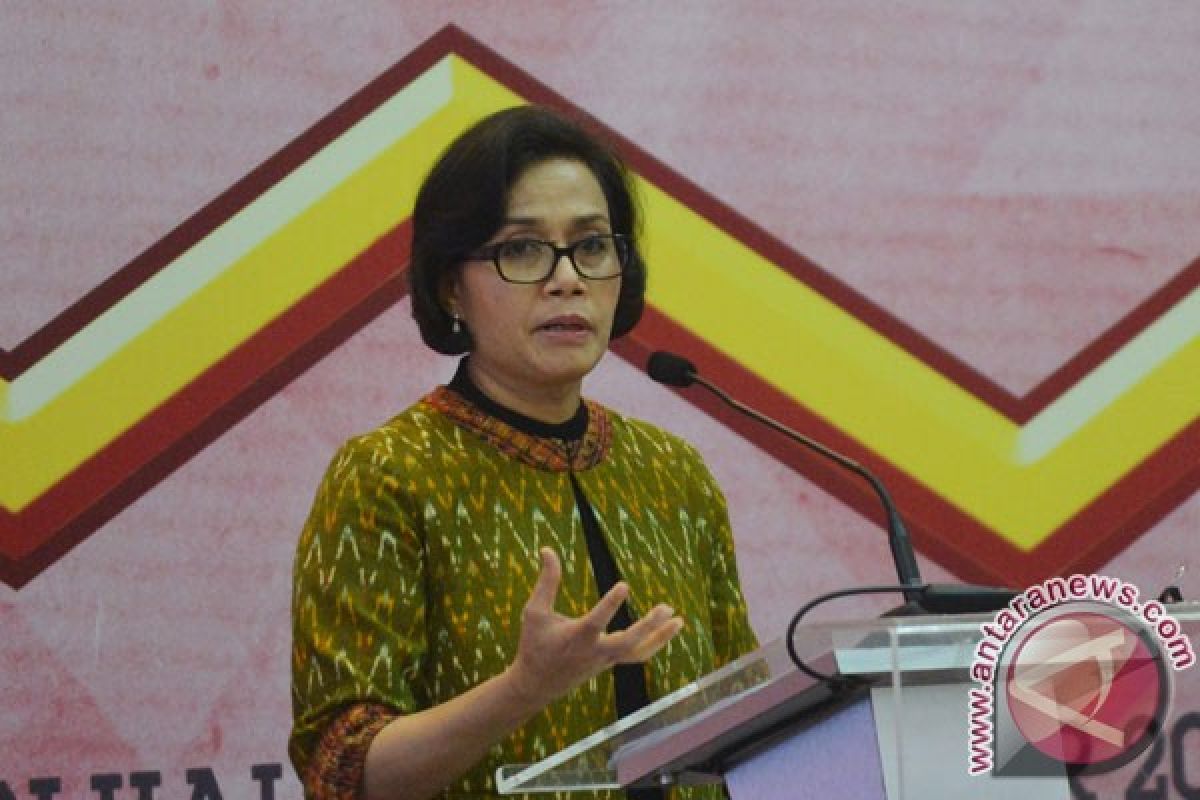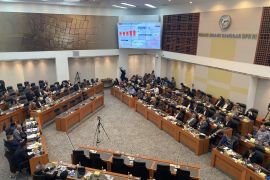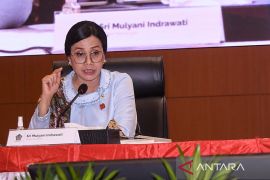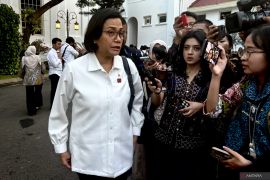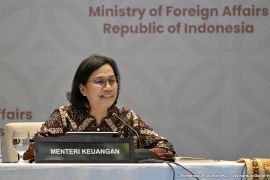There is optimism because we are convinced we will be able to maintain the momentum."Jakarta (ANTARA News) - The government is mixing optimism with prudence in forecasting and assuming the rate of economic growth in the state budget for 2017, which is lower than what many institutions predicted.
According to Finance Minister Sri Mulyani, as quoted on the Finance Ministrys website http://www.kemenkeu.go.id, on Wednesday, the government has assumed the economic growth for 2017 at 5.1 percent.
The governments prediction of 5.1 percent growth reflects a balance between optimism and pragmatic understanding.
"There is optimism because we are convinced we will be able to maintain the momentum. We balanced it with some prudence because there are external or even internal challenges that we would have to face," Finance Minister Sri Mulayani Indrawati said while addressing a seminar on Indonesia Economic Outlook 2017 in Jakarta on Wednesday (Nov. 23).
Moreover, household consumption is expected to grow by 5 percent while government expenditure is predicted to remain stable around 4.8 percent. Besides, investment by the private sector and the capital market is forecast to be better than last year.
Exports and imports are also predicted to grow by about 0.2 percent and 0.7 percent, respectively. "This reflects that global trade will still remain slow," she noted.
Several institutions have, however, predicted higher growth. The World Bank, for example, has predicted Indonesias economic growth at 5.3 percent for next year. Other institutions such as the Asian Development Bank (ADB), the Bloomberg Consensus Forecast, S&P, Fitch, and Moodys have set their predictions, respectively, at 5.1 percent, 5.3 percent, 5.2 percent, 5.5 percent and 5.2 percent.
The Indonesian central bank, Bank Indonesia (BI), has even revised down its growth forecast from 5.1-5.5 percent to 5.0-5.4 percent, arguing that the global economy is not expected to fully recover next year.
"We have to make adjustments by revising down the previous growth forecast, because the world economic growth in 2016 turned out to be worse than last years level," BI Governor Agus Martowardojo told a press conference on November 17.
Agus had predicted that the global economic condition in 2017 would be affected by the impact of the 2016 economic downturn. This has forced the BI to continue revising down its growth forecast.
"Various international bodies and reputed institutions have also revised down their global economic growth predictions for 2017," Agus reiterated.
Apart from that, such revision of growth projections was also based on credit growth, which is expected to increase only after the end of the second quarter of 2017 following the gloomy global economic activity during 2016.
Last October, BI had predicted that Indonesias economic growth in 2017 will be higher than the assumed 5.1 percent. The growth assumption was made in the Draft 2017 State Budget, recently approved by the government and the Houses budgetary body.
"I see it as a conservative assumption. We hope that we can achieve even more in 2017," Agus had said.
He reminded that the government revised its economic growth estimates from the previous 5.3 percent to 5.1 percent in response to the global economic growth, which is predicted to remain slow.
"When the global economic growth plunges to 3.1 percent, we must understand that Indonesia would still need time to recover, so it was lowered to 5.1 percent," he explained.
The World Bank has predicted that the global economic growth will slow down to 3.1 percent from 3.5 percent in 2016. This is a challenge that we must face," he stressed.
According to Agus, if private investment is encouraged, it will contribute towards expeditious development in the country and will boost the domestic economic growth, too.
"The main challenges we face are of private investment. If it rises quickly, it would help the economic growth in Indonesia," Agus emphasized.
Agus, who is also the former CEO of Bank Mandiri, also reminded that the government needs to pay attention to the Fed Funds Rate, which is predicted to rise gradually by the end of the year and continue to rise next year. In addition, the global economic growth is predicted to be remain relatively unfavorable and will still be a challenge.
"We do remain wary of the global trade, which has fallen dramatically. It needs to be watched," Agus observed.
In the meantime, the Center of Reform on Economics Indonesia (CORE Indonesia) predicted that the rate of economic growth in Indonesia could reach 5.2 percent, though with certain conditions.
"We forecast that economic growth in 2017 could reach 5.2 percent," senior economist of CORE Indonesia, Hendri Saparini, pointed out during the Economic Outlook 2017 event in Jakarta.
The research institution predicted that Indonesias economic performance next year would potentially be better than this years. It would be supported by household consumption, which is expected to grow by 5.1 percent, and investment, which is projected to grow by 5.5 percent.
The World Bank predicted last month that Indonesias economy will grow by up to 5.3 percent in 2017 and 5.5 percent in 2018, thanks to the stable economic conditions in East Asia and the Pacific in the last three years.
"In Indonesia, growth rates will increase gradually from 4.8 percent in 2015 to 5.5 percent in 2018," Sudhir Shetty, the World Bank Chief Economist for East Asia and the Pacific, underlined during a teleconference with reporters on October 5.
The growth forecast is highly dependent on three parameters, namely, whether the public investment rises, the investment climate improves or the revenues increase, he stated.
(T.A014/INE/KR-BSR)
Reporter: Andi Abdussalam
Editor: Priyambodo RH
Copyright © ANTARA 2016
